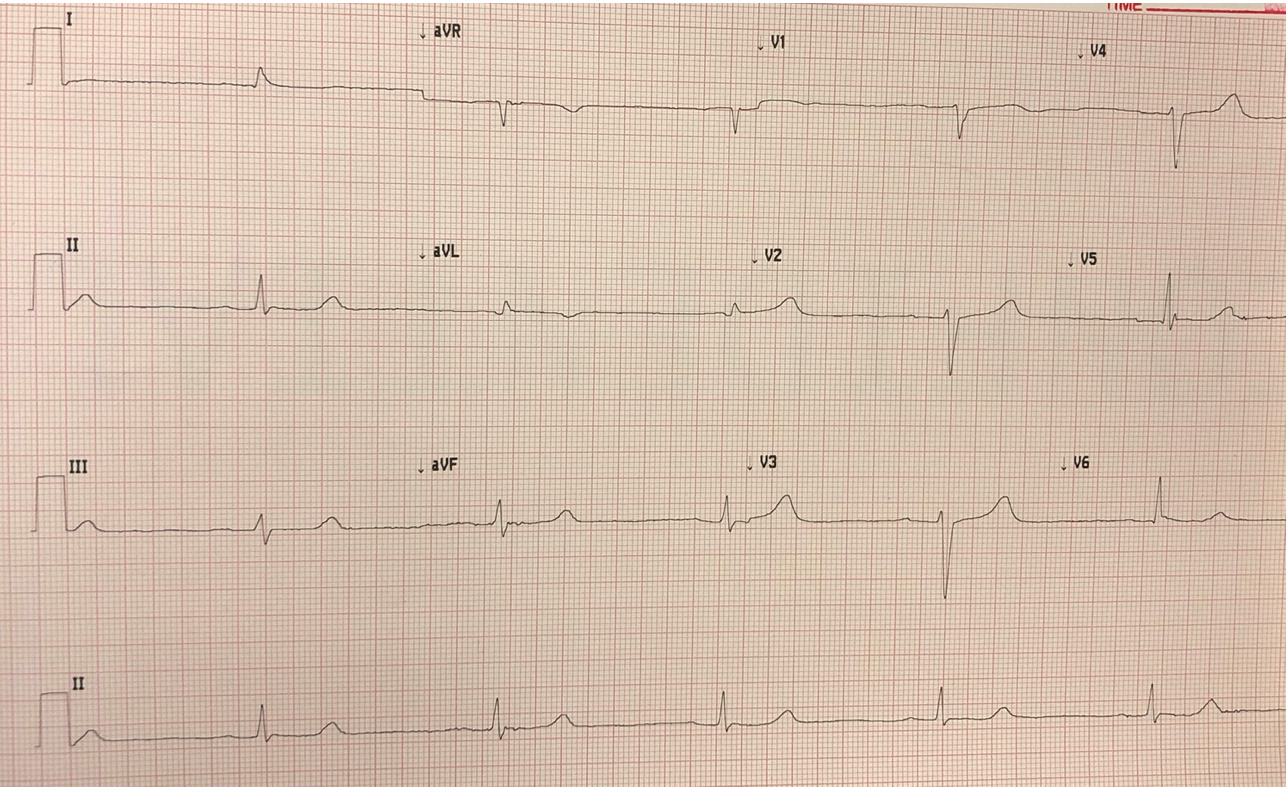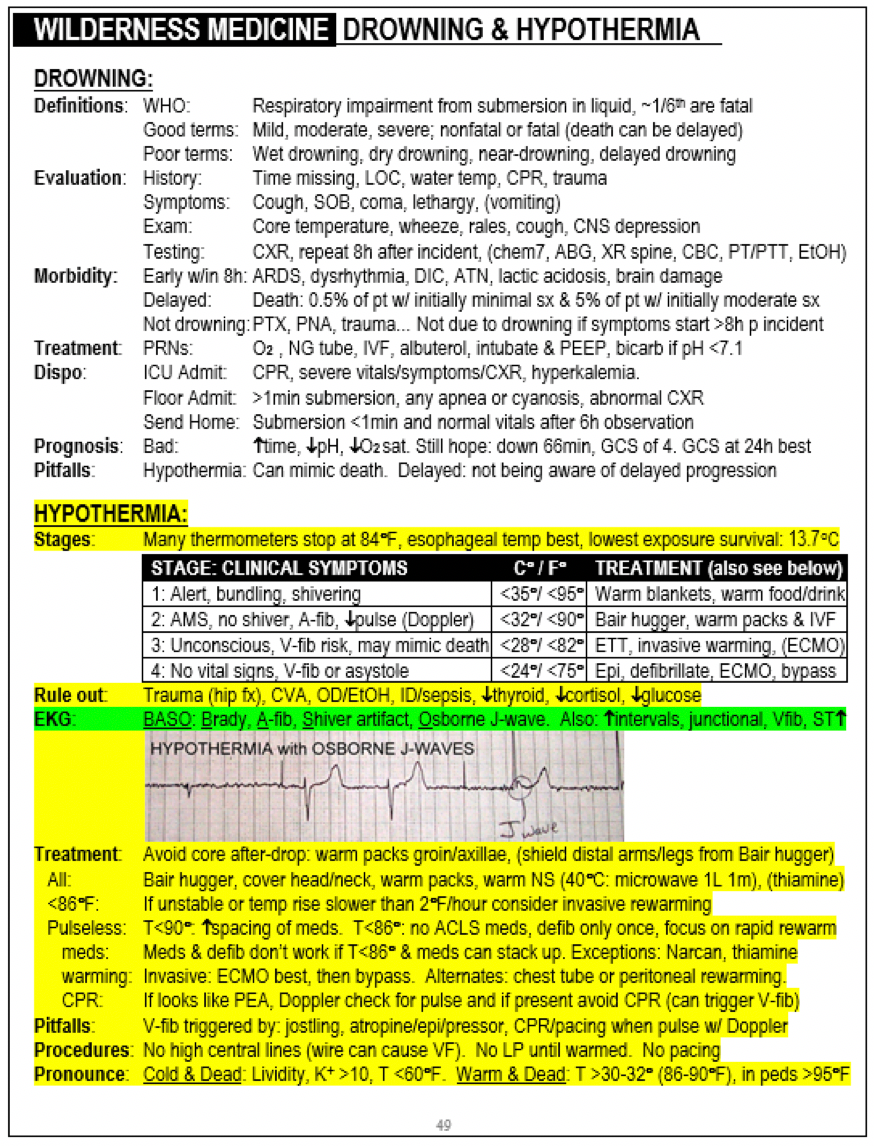Article
Case Report: Altered Elder
Author(s):
Our latest case report from Dr. Brady Pregerson features a 72 y/o male with a history of hypertension and TIA. Check out the EKG and see if you can determine the diagnosis.
CASE REPORT: Altered Elder
History: A 72-year-old male with a history of HTN and TIA is transported from a SNF to the emergency department for altered mental status. He looks at you but cannot give any history. The medics state that he was normal at dinner the night prior but didn’t eat breakfast and then at lunch wasn’t answering any questions. The staff didn’t mention if there had been any pain, weakness, fever, vomiting, or trouble breathing.
Exam: Vital signs show a pulse of 40, a BP of 122/66, and a respiratory rate of 12 with a room air SpO2 of 96%. He is altered but non-focal. On the monitor, he appears to be in atrial fibrillation with rates between 32 and 60 so you ask for a 12 lead EKG, which is seen below.

EKG ANALYSIS, CASE OUTCOME, 1-MINUTE CONSULT & CASE LESSONS:
1) EKG analysis (Peer reviewed by Dr. Stephen W. Smith of Dr. Smith’s ECG Blog): The computer read is correct but incomplete as there is also a possible Osborne J-wave in V5 as well as a flipped T-wave in lead aVL. This EKG, though not impressive, is along with the clinical picture suspicious for hypothermia. Not infrequently the EKG is available before the core temperature is. This patient’s temperature was 85 degrees F. There is no shiver artifact on the EKG likely because below 90 degrees patients may stop shivering. There was atrial fibrillation in the field and in the ED, but it resolved prior to the above EKG.
2) Case Conclusion: The patient was cultured and given antibiotics for possible sepsis since he developed hypothermia with no environmental exposure. He was rewarmed and the repeat EKG showed resolution of the J-wave. Unfortunately, he developed progressive multi-organ failure including respiratory failure and hypotension over the next few days and eventually expired in the hospital. No definite cause was determined but sepsis was suspected.

3) Case Lessons: Always consider the following in a bradycardic patient: medication toxicity, hypothermia, myxedema, cardiac disease and hypokalemia.EKG findings in hypothermia often also include atrial fibrillation, shiver artifact and/or Osborne J-waves.Less common findings are prolonged intervals, ST segment elevation and ventricular dysrhythmias.





